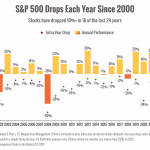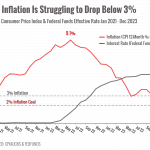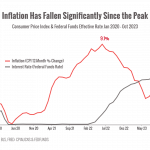Simple, Bedrock Rules on Personal Finance
 When financial columnist Brett Arends penned his final piece for the Wall Street Journal, it was absolutely foundational!
When financial columnist Brett Arends penned his final piece for the Wall Street Journal, it was absolutely foundational!
Ignore economic and financial forecasts. Their purpose is to keep forecasters employed. Most professional economists were blindsided in 2008 by the biggest financial collapse in 70 years—and by the stock market’s recovery.
Ignore “expert” stock picks. The stocks that Wall Street experts like most generally fare no better than those they like least—or stocks picked at random.
Keep it simple. Complicated financial strategies and investments are mostly designed to enrich managers and salesmen.
Buy individual stocks only as a gamble. Never buy fashionable investments.
Put most of your long-term portfolio into equities. While equities are volatile, they generally produce the best long-term returns—typically about 4% to 5% a year above inflation. But remember to hang on when they plummet.
Invest globally, not just in the U.S. Foreign stock markets, in the aggregate, are no riskier than U.S. markets and offer terrific diversification.
Buy Treasurys, too: In addition to stocks, own some long-term Treasury bonds and some Treasury inflation-protected securities. These are likely to hold their value, or even go up, when stocks crash.
Save early, save often. Time and patience are the investor’s best friends.
Use those free shelters. Contribute as much as possible to your company’s 401(k) plan or equivalent (such as 403(b) or 457), and at least enough to get the company match. If you can, contribute to individual retirement accounts for yourself, and a nonworking spouse, as well.
Plan for a long life. A third of your adult life could come after you’re 65. Try to pay off your mortgage, and save at least 10 times your annual salary, by the time you retire. Delay taking Social Security for as long as you can up to the age of 70, to maximize each monthly check.
Beware of buying your employer’s stock. Your job there is probably financial exposure enough.
Protect your nest egg. Don’t drain your retirement savings to pay for your child’s college education. Likewise, don’t empty your 401(k) or IRAs to start a business. You will be taxed and penalized on the withdrawals even if you lose the money.
Teach your children about money. Teach them early and often. No one else will, and they will have to make their own way.








